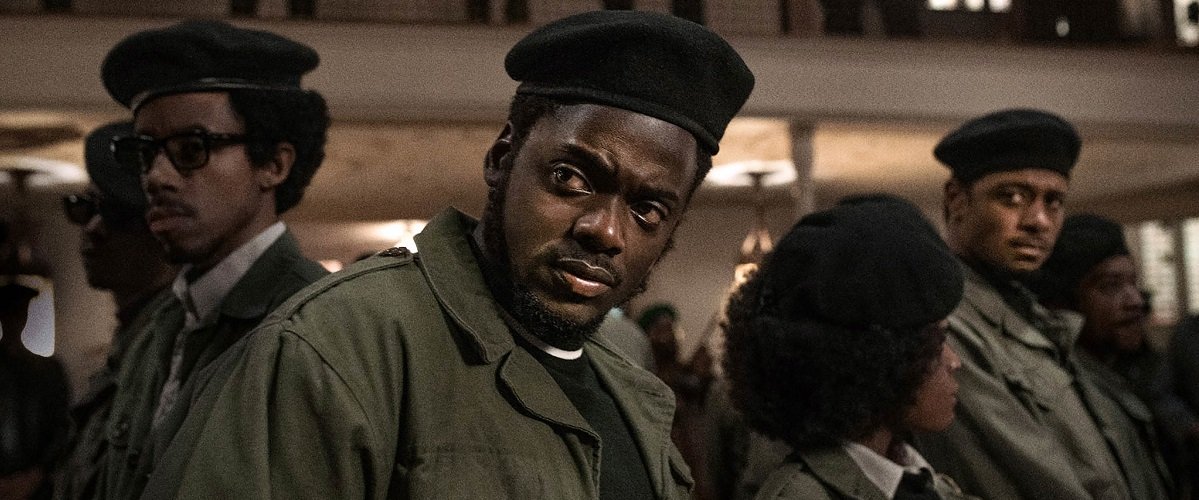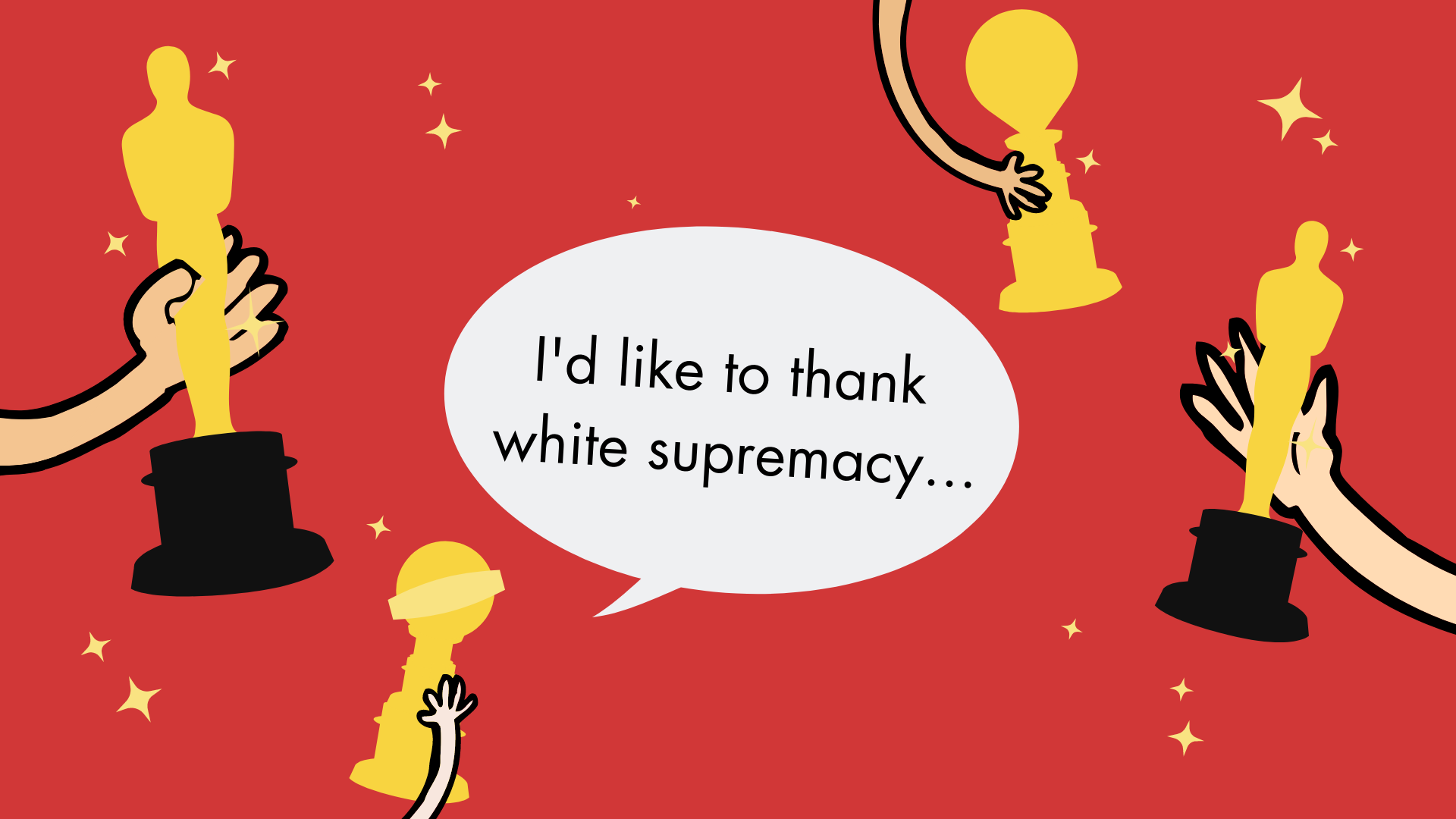
Diyora Shadijanova
From Dev Patel to Bukky Bakray, is open casting the key to finding diverse talent?
Unlike traditional hiring processes, open casting allows untrained talent to audition for even the most starry of roles.
Faima Bakar
08 Jun 2021
After watching Denzel Washington in Training Day, a young Black teenager from east London googled: “how to become an actor”. That teenager was Bukky Bakray – the BAFTA-winning rising star from Netflix’s Rocks. With the world having seen her immense talent, there’s almost no doubt that Bukky’s future will continue to be bright, but many will be surprised to find out that her dream may not have come true. It was only after a casting director for Rocks came to her school that she had the opportunity to audition for the highly sought-after role.
Bukky, alongside many of the film’s brilliant schoolgirl cast, had no prior acting experience – yet Rocks became the most-nominated film at the BAFTAs after handpicking its actors through open auditions facilitated by school workshops and youth clubs in the city. As the best of British talent gathered this weekend for the BAFTA TV awards, we’re finally seeing an establishment appreciation of refreshing Black-led dramas, including I May Destroy You and Small Axe. But if film and TV creators want to go one step further when it comes to casting actors from different racial and class backgrounds, they might want to employ open casting too.
Open casting – which allows anyone, regardless of acting experience, to turn up and audition, even for major roles – may become an enduring trend. The leads of Netflix’s Bridgerton cut their teeth in the BBC drama Waterloo Road, which cast a score of young people in their first acting roles. In 2019, two films with untrained leading actors, Capernaum and Roma, were nominated for Oscars. Teen drama Skins also found breakout talent in a teenage Daniel Kaluuya (who has recently become the first Black Briton to win an Oscar), Dev Patel (another BAFTA-winner), Kaya Scodelario, Hannah Murray and more. Skins’ creators wanted the show to be authentic and refreshing, so they used open auditions to hire actual teenagers – unlike the 30-year-olds in disguise we were accustomed to seeing in US ‘teen’ counterparts such as The O.C. and Gossip Girl.
“Bukky, alongside the film’s brilliant schoolgirl cast, had no prior acting experience – yet Rocks became the most-nominated film at the BAFTAs after handpicking its actors through open auditions”
These projects show that open auditions can, and tend to, lead to diverse casting. They also have the power to supercharge the careers of aspiring young actors of colour from working-class backgrounds, who may not have had the opportunity to be seen by casting directors who go via the traditional route of recruiting through acting schools and agencies.
“We 100% wouldn’t have gone to auditions if the casting directors didn’t show genuine interest,” Bukky tells gal-dem. “We weren’t naive and could tell if individuals were selling us dreams. Lucy [Pardee] and Sarah [Gavron, Rocks’ director] seemed genuinely interested, asking us questions about ourselves that felt tedious at the time because nobody had really asked us about ourselves in depth before.” Anyone who’s watched Rocks will be taken aback by the colossal talent of the cast (even the pet frog feels like a paid actor). But had the creators not employed open casting, Bukky may never have entered the industry. Commenting on whether more casting directors should utilise this hiring process, Bukky adds: “There is so much talent in the ‘streets,’ and if the nature of your film requires open casting then why not use it?”
Rocks’ casting director, Lucy Pardee, has won both a BAFTA and a British Independent Film Award for her hand-picked cast and tells gal-dem, “I don’t just do open casting, I go into communities. I went into 14 different schools [for Rocks], it’s not enough putting a poster up, as quite often, people won’t come forward for it.”
“Without holistic approaches to casting, audiences are deprived of genuinely talented artists”
Lucy feels that without holistic approaches to casting, audiences are deprived of genuinely talented artists. “All the raw materials were there – the performances that Bukky, and Kosar (who plays Rocks’ best friend Sumaya) and the cast delivered – it was all within them, but we just used our skills and knowledge to help make that a reality. The collaboration with the girls, who are teenagers and in active friendships, meant they were able to bring that nuance and energy, which is magic.”
Working with actors who haven’t all been through the same institutions can also be refreshing for the filmmakers, as they can be less hindered by industry norms and offer new perspectives. “Once, Kosar came up to the director and was like ‘this scene is dead’ and she was right!” Lucy continues. “So we decided to kill the scene. I love that because young people are so direct and open.”
Similarly, Waterloo Road’s method of going into schools to hire untrained performers in leading roles has propelled many actors to stardom, including Jack O’Connell, Jenna Coleman, and Adam Thomas. Casting director Michelle Smith chose the likes of Phoebe Dynevor for the show – who went on to play Daphne in mega hit Bridgerton – and says that they “did a huge trawl in schools, on a Saturday for people who were interested. It was very labour-intensive as you have to put a brief out everywhere, and get people to come to the school, read bits and do workshops with them. It is a great way to find new talent, and it’s a great way to open up opportunities.”
“One of the cons for untrained actors is an attitude from industry elites that they haven’t worked as hard for it”
Michelle, who also cast the award-winning This is England, prefers to throw a wide net when recruiting instead of hiring classically trained actors, even if it’s logistically harder to do. She carried on in her role when Waterloo Road moved to Scotland, but says the casting team suffered as the communities weren’t as diverse as Manchester, Leeds, and Bradford. “Open casting is just trying to give people the opportunity to have a proper career and not just the flash in the pan. You want to enhance their career so that they become proper actors,” she says.
Sunnie Sidhu, a street caster who’s been doing the job for 14 years with StreetCastUK, an organisation that recruits ordinary people for film, TV, music videos and adverts, agrees with Michelle. But one of the cons for untrained actors, she says, is an attitude from industry elites that they haven’t worked as hard for it. “There will always be some snobbery about open casting,” explains Sunnie, “but it shouldn’t matter; casting should be about the performance only, regardless of background and entry into the industry.”
For actors from under-represented backgrounds, open casting is hugely beneficial. Saffiya Ingar, an actress on BBC’s Doctors and Summer of Rockets, has been to multiple open auditions. “I see nothing but pros with open casting,” she says. “It’s an amazing way to get your foot in the door. I’ve been to auditions where I may not be initially right for the part, but because I am who I am, I’m able to make an impression and directors have asked me to come back for other roles. Open casting is a great way to get your name in rooms it might not otherwise be in.” Through open casting, Safiyya was able to audition for the upcoming Ms Marvel, an exciting new instalment of the Marvel Cinematic Universe which recently hired Iman Vellani, a Pakistani actress with no acting credits.
“Even without producing exceptional names, there is still merit in hiring people from marginalised backgrounds”
With so many apparent benefits, shouldn’t more casting directors be going into schools and youth clubs, especially in diverse and working-class areas, to employ untrained people? “It’s down to the industry to make structural changes,” Lucy Pardee says. “It goes beyond casting. Casting is a door but it’s beholden to all of us that if we’re inviting people into the industry, that we create meaningful pathways and support them.” And to that end, the creators of Rocks have started Bridge – a collective that consciously supports aftercare for young newcomers to the profession.
So where can actors go to find details of open castings? Thankfully, there are plenty of online options including the Twitter page ‘Open Auditions’ dedicated to spotlighting upcoming acting opportunities.
Though hiring actors with less experience is more of a logistical effort, no one can deny that the process can uncover hidden talent. But even without producing exceptional names, there is still merit in hiring people from marginalised backgrounds and from different regions, not least for what it means to the actors who are, finally, given a chance. If open casting levels the playing field even just a little, casting directors really have no excuse not to branch out.
*Interviews have been edited for length and clarity









